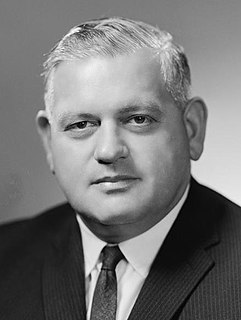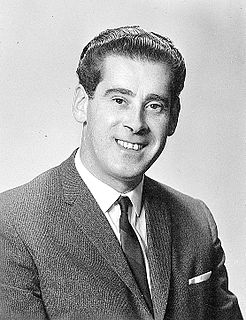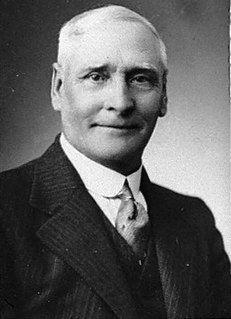Related Research Articles

James Patrick Anderton was a New Zealand politician who led a succession of left-wing parties after leaving the Labour Party in 1989.

The 1984 New Zealand general election was a nationwide vote to determine the composition of the 41st New Zealand Parliament. It marked the beginning of the Fourth Labour Government, with David Lange's Labour Party defeating the long-serving Prime Minister, Robert Muldoon, of the National Party. It was also the last election in which the Social Credit Party won seats as an independent entity. The election was also the only one in which the New Zealand Party, a protest party, played any substantial role.

The 1972 New Zealand general election was held on 25 November to elect MPs to the 37th session of the New Zealand Parliament. The Labour Party, led by Norman Kirk, defeated the governing National Party.
The Country Party of New Zealand was a political party which appealed to rural voters. It was represented in Parliament from 1928 to 1938. Its policies were a mixture of rural advocacy and social credit theory.
The Independent Political Labour League (IPLL) was a small New Zealand political party. It was the second organised political party to win a seat in the House of Representatives, and was a forerunner of the modern Labour Party.
The Christchurch Central by-election of 1979 was a by-election during the 39th New Zealand Parliament. It was prompted by the death of Bruce Barclay, a Labour Party MP, and resulted in Geoffrey Palmer, also of the Labour Party, being elected to replace him for the seat of Christchurch Central. Palmer would eventually go on to become Prime Minister. The by-election was somewhat embarrassing for the National Party, whose candidate was pushed into third place by Social Credit's Terry Heffernan.

The 1905 New Zealand general election was held on Wednesday, 6 December in the general electorates, and on Wednesday, 20 December in the Māori electorates to elect a total of 80 MPs to the 16th session of the New Zealand Parliament. A total number of 412,702 voters turned out, with 396,657 voting in the European electorates.

George Warren Russell was a New Zealand politician from Christchurch. He served as Minister of Internal Affairs and Minister of Public Health in the wartime National government, and was responsible for the New Zealand government's response to the 1918 influenza epidemic.

Invercargill is an electorate of the New Zealand Parliament that has existed since 1866. Since the 2020 election, the electorate's representative is Penny Simmonds of the National Party.

Bruce Gillespie Barclay was a New Zealand politician, being the Member of Parliament for Christchurch Central in the South Island.

William Theophilus Anderton was a New Zealand politician of the Labour Party. He served as Minister of Internal Affairs in the second Labour Government, from 1957 to 1960.

John Gerald O’Brien, known as Gerald O'Brien, was a New Zealand politician of the Labour Party.
Awarua was a New Zealand parliamentary electorate from 1881 to 1996.
Western Maori was one of New Zealand's four original parliamentary Māori electorates established in 1868, along with Northern Maori, Eastern Maori and Southern Maori. In 1996, with the introduction of MMP, the Maori electorates were updated, and Western Maori was replaced with the Te Tai Hauāuru and Te Puku O Te Whenua electorates.

Vernon Herbert Reed was a Liberal Party and from 1912 a Reform Party member of parliament in New Zealand. He was later a member of the Legislative Council.
James Mackintosh was a 19th-century Liberal Party Member of Parliament in Southland, New Zealand.
The Sydenham by-election 1974 was a by-election held in the Sydenham electorate during the term of the 37th New Zealand Parliament on 2 November 1974. Eight candidates stood in total.

The Fendalton by-election of 1967 was a by-election for the electorate of Fendalton on 15 April 1967 during the 35th New Zealand Parliament.

The Raglan by-election of 1927 was a by-election held in the Raglan electorate during the 22nd New Zealand Parliament, on 29 September 1927. It was caused by the death of incumbent MP Richard Bollard of the Reform Party. Despite being a local contest it quickly became a national contest in miniature due to growing discontent with the Reform Government.
The New Zealand Liberal Federation was a defunct laissez-faire Liberal Party that was formed to stand electoral candidates in the mid-1950's.
References
- ↑ Milne, Robert Stephen (1966). Political Parties in New Zealand . Oxford, England: Clarendon Press. pp. 66–67.
- ↑ Gustafson, Barry (1986). The First 50 Years : A History of the New Zealand National Party . Auckland: Reed Methuen. p. 90. ISBN 0-474-00177-6.
- ↑ "Liberals Outline Major Policy". The New Zealand Herald . 2 February 1963. p. 4.
- ↑ Norton, Clifford (1988). New Zealand Parliamentary Election Results 1946-1987: Occasional Publications No 1, Department of Political Science. Wellington: Victoria University of Wellington. ISBN 0-475-11200-8.
- ↑ "All Deposits lost by Liberals". The New Zealand Herald . 2 December 1963. p. 1.
- ↑ "Liberal Dies". Auckland Star . 10 May 1982. p. 14.
- ↑ "Christchurch City Council". The Press . 19 October 1965. p. 32.
- ↑ "Candidate for by-election". The Press . Vol. CVI, no. 31, 304. 25 February 1967. p. 1.